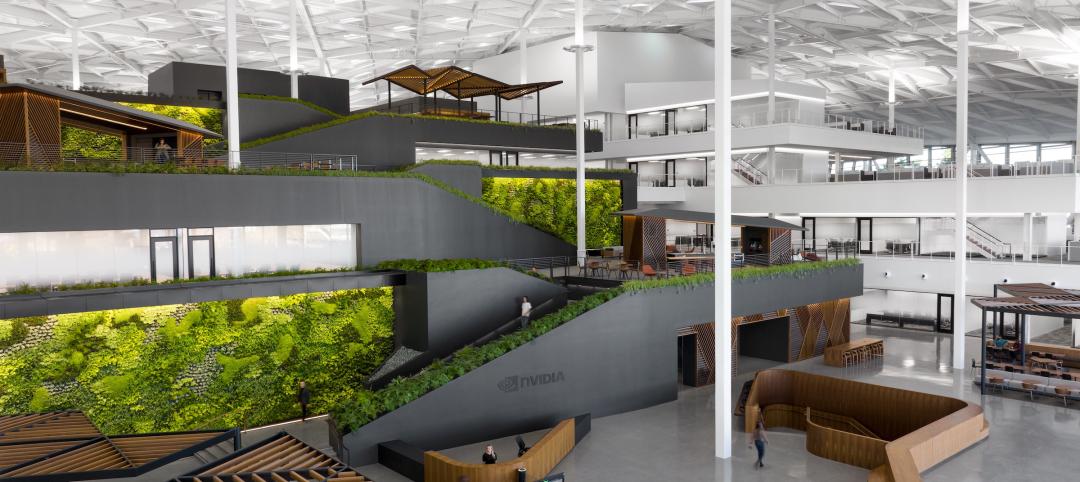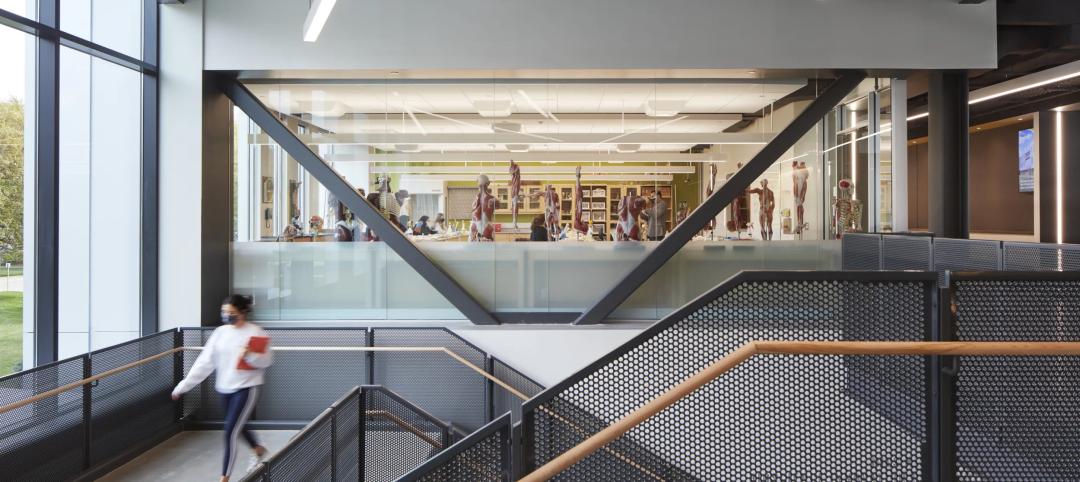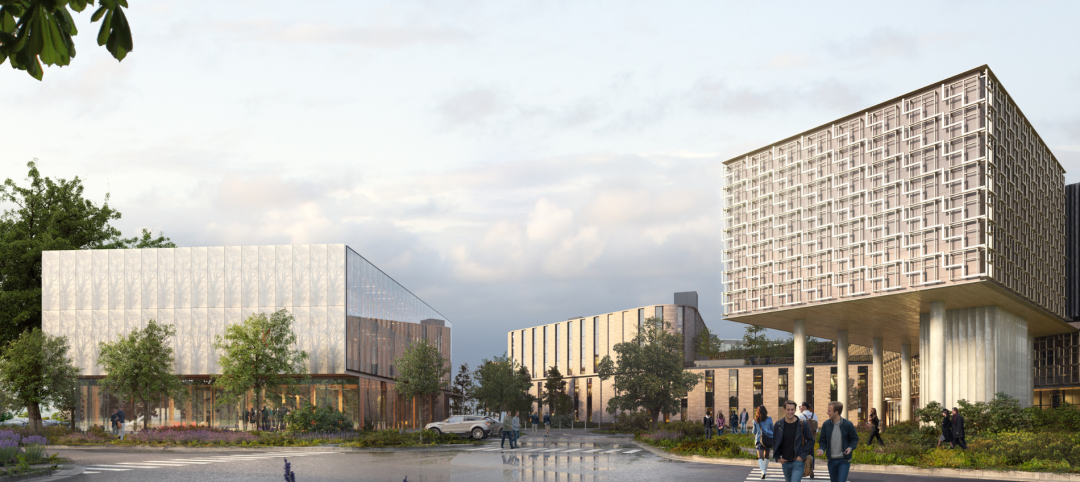Even with the myriad of obstacles preventing a full scale recovery for the overall U.S. economy, the design and construction industry appears to have reasons to be at least modestly optimistic in the coming months and into next year.
A sharp spike in demand for industrial facilities so far this year, along with sustained demand for hotels and retail projects factors into what projects to be a 4.4% rise in spending this year for nonresidential construction projects – up from a projection of a 2.1% increase in the January Consensus Forecast.
The American Institute of Architects (AIA) semi-annual Consensus Construction Forecast, a survey of the nation’s leading construction forecasters, also projects a 6.2% increase of spending in 2013.
“With companies looking to bring back manufacturing jobs from overseas, there has been a sharp rise in demand for industrial facilities, which is leading to an upward revision in projections for future construction spending,” said AIA Chief Economist, Kermit Baker, PhD, Hon. AIA. “Continued budget shortfalls at the state and local level, along with a depressed municipal bond market are holding the institutional market back from seeing similar upticks in spending.”
|
Market Segment Consensus Growth Forecasts |
2012 |
2013 |
|
Overall nonresidential |
4.4% |
6.20% |
|
Commercial / industrial |
5.7% |
10.20% |
|
Industrial |
12.9% |
8.10% |
|
Hotels |
9.5% |
18.20% |
|
Retail |
6.2% |
9.00% |
|
Office buildings |
4.7% |
8.70% |
|
Institutional |
0.7% |
3.00% |
|
Healthcare facilities |
4.0% |
7.50% |
|
Education |
0.3% |
1.10% |
|
Amusement / recreation |
0.1% |
2.30% |
|
Public safety |
0.0% |
0.10% |
|
Religious |
-5.0% |
3.00% |
Remarking on what risks exist that could undermine these projections, Baker added, “Federal tax and spending changes – the so-called fiscal cliff – that may come into play in early 2013 could upset the economic applecart and prove detrimental to recovery possibilities. We will likely have a better sense after the presidential election what will happen with regards to the Bush-era tax cuts, Social Security payroll tax, extended unemployment, and deficit reduction plans that will have a ripple effect that will extend to the construction industry.” +
Related Stories
Giants 400 | Aug 22, 2023
2023 Giants 400 Report: Ranking the nation's largest architecture, engineering, and construction firms
A record 552 AEC firms submitted data for BD+C's 2023 Giants 400 Report. The final report includes 137 rankings across 25 building sectors and specialty categories.
Giants 400 | Aug 22, 2023
Top 175 Architecture Firms for 2023
Gensler, HKS, Perkins&Will, Corgan, and Perkins Eastman top the rankings of the nation's largest architecture firms for nonresidential building and multifamily housing work, as reported in Building Design+Construction's 2023 Giants 400 Report.
Higher Education | Aug 22, 2023
How boldly uniting divergent disciplines boosts students’ career viability
CannonDesign's Charles Smith and Patricia Bou argue that spaces designed for interdisciplinary learning will help fuel a strong, resilient generation of students in an ever-changing economy.
Apartments | Aug 22, 2023
Key takeaways from RCLCO's 2023 apartment renter preferences study
Gregg Logan, Managing Director of real estate consulting firm RCLCO, reveals the highlights of RCLCO's new research study, “2023 Rental Consumer Preferences Report.” Logan speaks with BD+C's Robert Cassidy.
Shopping Centers | Aug 22, 2023
The mall of the future
There are three critical aspects of mall design that, through evolution, have proven to be instrumental in the staying power of a retail destination: parking, planning, and customer experience. This are crucial to the mall of the future.
Affordable Housing | Aug 21, 2023
Essential housing: What’s in a name?
For many in our communities, rising rents and increased demand for housing means they are only one paycheck away from being unhoused. It’s time to stop thinking of affordable housing as a handout and start calling it what it is: Essential Housing.
Healthcare Facilities | Aug 21, 2023
Sutter Health’s new surgical care center finishes three months early, $3 million under budget
Sutter Health’s Samaritan Court Ambulatory Care and Surgery Center (Samaritan Court), a three-story, 69,000 sf medical office building, was recently completed three months early and $3 million under budget, according to general contractor Skanska.
Healthcare Facilities | Aug 18, 2023
Psychiatric hospital to feature biophilic elements, aim for net-zero energy
A new 521,000 sf, 350-bed behavioral health hospital in Lakewood, Wash., a Tacoma suburb, will serve forensic patients who enter care through the criminal court system, freeing other areas of campus to serve civil patients. The facility at Western State Hospital, to be designed by HOK, will promote a holistic approach to rehabilitation as part of the state’s vision for transforming behavioral health.
Vertical Transportation | Aug 17, 2023
Latest version of elevator safety code has more than 100 changes
A new version of ASME A17.1/CSA B44, a safety code for elevators, escalators, and related equipment developed by the American Society of Mechanical Engineers, will be released next month.
Adaptive Reuse | Aug 16, 2023
One of New York’s largest office-to-residential conversions kicks off soon
One of New York City’s largest office-to-residential conversions will soon be underway in lower Manhattan. 55 Broad Street, which served as the headquarters for Goldman Sachs from 1967 until 1983, will be reborn as a residence with 571 market rate apartments. The 30-story building will offer a wealth of amenities including a private club, wellness and fitness activities.

















